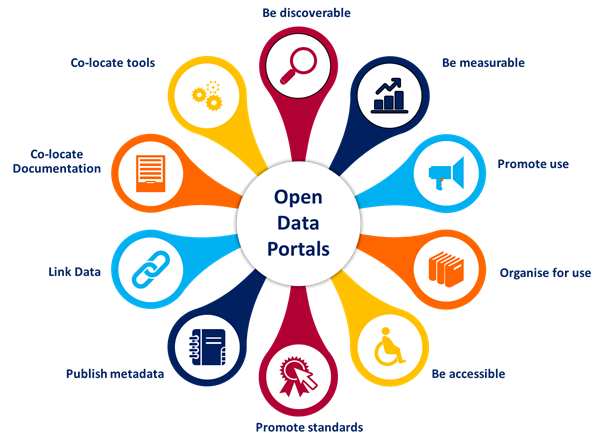
Opening Data to the World: Empowering Societies through Transparency and Collaboration
Opening Data to the World: Empowering Societies through Transparency and Collaboration https://opusproject.eu/wp-content/uploads/2023/05/open-data-portals.png 605 443 Open and Universal Science (OPUS) Project Open and Universal Science (OPUS) Project https://opusproject.eu/wp-content/uploads/2023/05/open-data-portals.pngIn the digital age, data has become a valuable asset that shapes our understanding of the world and drives innovation. Governments, organizations, and individuals possess vast amounts of data, ranging from demographic statistics and scientific research to economic indicators and environmental records. Historically, this data was often locked away, accessible only to a select few. However, a global movement is emerging to challenge this status quo and promote the opening of data to the world. In this article, we explore the significance of opening data, the benefits it brings, and the challenges it entails.
The Power of Open Data
Open data refers to the idea that certain types of information should be freely available for anyone to access, use, and share without restrictions. By opening data to the world, governments and organizations foster transparency, accountability, and collaboration, leading to numerous advantages for societies worldwide.
- Transparency and Accountability: Open data promotes transparency by allowing citizens to gain insights into government activities, public spending, and decision-making processes. When governments open their data, it becomes easier to hold them accountable for their actions, reducing corruption and fostering trust between the public and governing bodies.
- Improved Services and Decision Making: Accessible data enables organizations and governments to make more informed decisions. When diverse stakeholders can access and analyze data, they can identify patterns, trends, and gaps that help drive evidence-based policies and service improvements. For instance, open health data can support the development of targeted public health programs and facilitate medical research.
- Economic Growth and Innovation: Open data acts as a catalyst for economic growth and innovation. By providing entrepreneurs, researchers, and developers with access to datasets, new ideas and applications can emerge. Startups can leverage open data to create innovative products and services, stimulating job creation and economic development.
- Citizen Empowerment: Opening data empowers citizens to actively engage in the democratic process. When citizens have access to relevant information, they can participate more effectively in public discussions, advocate for their rights, and contribute to civic initiatives. Open data facilitates a more inclusive and participatory society.
Challenges and Considerations
While the benefits of opening data are undeniable, several challenges must be addressed to ensure its effective implementation:
- Privacy and Security: Opening data should not compromise individual privacy or expose sensitive information. Striking the right balance between openness and privacy is crucial. Data must be carefully anonymized or aggregated to protect personal details and ensure compliance with privacy regulations.
- Data Quality and Standardization: Ensuring data accuracy, reliability, and consistency is essential for meaningful use. Establishing data quality standards and promoting interoperability across different sources is necessary to maximize the potential benefits of open data.
- Digital Divide and Accessibility: Opening data to the world must consider accessibility for all. The digital divide, which refers to disparities in internet access and digital literacy, can hinder certain populations from benefiting from open data initiatives. Efforts should be made to bridge this divide and promote inclusive access to data.
- Legal and Ethical Considerations: Opening data requires navigating legal and ethical frameworks. Intellectual property rights, copyright issues, and licensing terms need to be considered when sharing data. Moreover, ethical guidelines should be established to ensure data is used responsibly and ethically.
Opening data to the world represents a transformative shift towards transparency, collaboration, and innovation. By breaking down barriers and making data accessible, governments, organizations, and individuals can harness its power to address societal challenges effectively. While challenges exist, with careful planning, data quality assurance, and consideration for privacy, the benefits of open data are immense. By embracing openness, we can unlock the full potential of data and create a more empowered and prosperous world for all.
- Posted In:
- Open Science News




